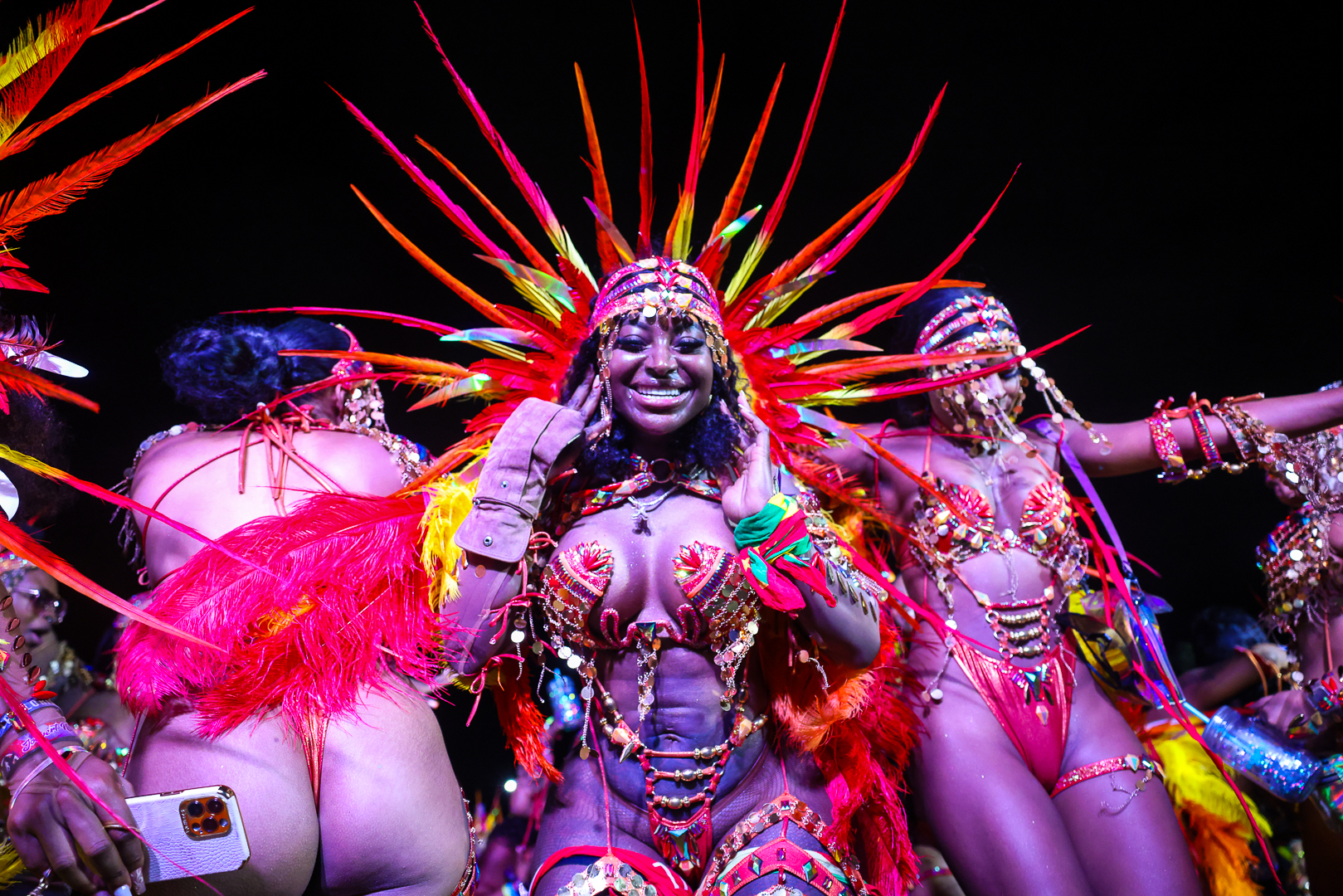Patrice Roberts was born to be a soca star.
During the late nineties, very few women soca artists were able to break through what appears to be a gender barrier, particularly for solo women artists. In the early 2000s, Denise Belfon, Destra and Alison Hinds were among the few that were able to reach an impressive level of notoriety making music in the Caribbean.
Besides them, only a handful of other songstresses, which included the likes of Michelle Sylvester, Lil Bitts, the late Onika Bostic, and Sanelle Dempster—who became the second woman calypsonian to win Road March with her 1999 hit “The River”—were able to make measurable waves with their music. Whatever success they amassed was nothing near what their male counterparts were doing.
This is the scene in which Roberts emerged, though long before she won the Sangre Grande Junior Calypso Monarch competition in 1995, Roberts recalls often singing into her mother’s brushes in her family home in Toco, Trinidad, where she grew up on the sounds of traditional calypso and kaiso music.
Even amidst that victory, which would become the first of many milestones and career highs, she had no idea that it would set the stage for such a long and fruitful global career. She snagged many rare victories, including winning the coveted Road March competition, alongside Machel Montano in 2006 for their song “Band of the Year.”
“I always wanted to sing,” she recalls. “That’s how I knew I had this passion for singing, a passion for being an artist. So I moved on to singing competitions.”
In the years that followed, Roberts would be exposed to working alongside soca powerhouses like Machel Montano and Bunji Garlin – and she would even become the first woman vocalist in the legendary calypso band Xtatik.
“I was so blessed to be around some of the greats,” she said. “I’ve had so many hands-on experiences and really got the opportunity to just see what they do. I tried to take as much of that experience as I could and use it to become the artist I am today.”
Working with Xtatik put her in even closer proximity to Montano, who truly believed in her artistry.

“Not much artists or persons will see your true potential even more than you see it yourself,” she explained. “But he saw that and he took me and brought me under his wing. He would keep telling me, ‘Keep going, you have to do this, this is what you’re supposed to do.’”
Roberts says Montano’s belief in her helped her overcome a lot of the internal struggle that came from being a woman in what was very much an industry and genre dominated by men at the time.
Despite her current confidence, she says it wasn’t always easy to be center stage. “My confidence didn’t happen overnight,” she said. “My insecurity was my weight. I was really skinny and I didn’t think I was the prettiest in the room. I would look myself in the mirror, cry everyday and still go on stage and perform. No one knows what you go through as a woman.”
It’s one of the reasons so much of her current success is centered around her womanhood – but also the experience of womanhood in general. Roberts has become an inspiration to women and girls all around the world. Her concerts often feature opening acts by other female emerging artists like Imani Ray and Tempa, the first openly LGBTQ+ soca artist.
Despite her assertion that she wasn’t being body shamed, she described feeling like she wasn’t meeting beauty standards, which, in the Caribbean, are very different from what they are in North America. She dealt with these insecurities for years. But she says becoming a mom changed that – and inspired her timeless and relatable hit, “Big Girl Now.”
“With time, I’ve learned to love me,” she said. “I think that transition happened from the moment that I became a mom. My body started changing. And then my mind started to change. Things that I would knock myself for, I don’t anymore because I have someone who’s looking up to me. So from the moment I became a mom, my mindset just changed.”
Despite already having collaborations with heavy hitters like Shaggy, Kes, Afro B and Tarrus Riley, she says there’s still lots to come.
“I would honestly love to collaborate with Beyoncé and with Nicki Minaj,” she said. “I definitely believe that soca music is a happy type of music and music that people need to experience. I feel like if we collaborate with different genres, we will break barriers.”
Unlike many artists blinded by the glitz and glamor of taking soca mainstream, Roberts acknowledges that there is a risk of losing its authenticity, but she has a suggestion to ensure that doesn’t happen.
“I think we have to stay true to ourselves because every artist has to stay true to themselves. It’s just finding that niche, finding that balance. I think we’re still researching, and we’re still experimenting but we’ll get there.”
So where is “there”? What lies ahead for the genre that is soca – and what does she envision her role to be in it?
“I feel like it’s heading in the right direction,” she said. “My soca colleagues and I, we’ve been working tirelessly to make sure that soca music is being recognized by the world. Skinny Fabulous, Nadia Batson, Nailah, all these artists, we have been working so hard.”
And she has been working hard. She recently released a new song for Crop Over, entitled “Talk De Tings”, written by Mical Teja, who she credits with being a driving force behind the success of “Mind My Business.”
As carnival season kicks into high gear on smaller Caribbean islands like Barbados, Grenada and St. Lucia and throughout North America in cities like Toronto, Patrice Roberts is showing us that she has stamina and is not ready to slow down any time soon.




